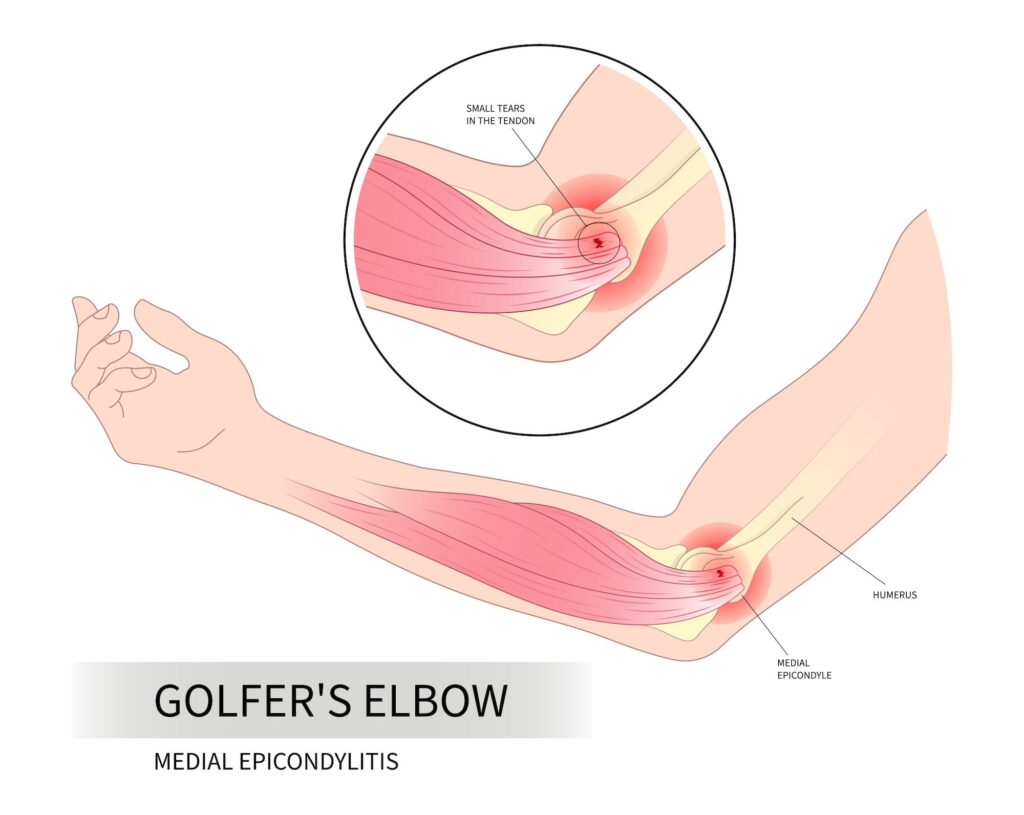Golfer’s elbow, medically known as medial epicondylitis, shares similarities with the well-known condition, tennis elbow. Both conditions stem from repetitive use, but unlike tennis elbow which affects the outside of the elbow, golfer’s elbow manifests on the inside portion, specifically at the medial condyle. This is where the tendons responsible for making a fist and bending the wrist originate.

With continued gripping and repetitive activities, these tendon origins can become overly irritated, beginning a degenerative process that results in symptoms such as pain and weakness, making various activities challenging. These symptoms are common in patients experiencing golfer’s elbow.
A unique aspect of medial epicondylitis is its proximity to the ulnar nerve, commonly referred to as the “funny bone” nerve. Due to this close geographical relationship, some patients may experience a combination of symptoms. They might have golfer’s elbow along with nerve irritation, leading to sensations that shoot down the forearm towards the hand, often described as “zingers”.
Given the complexity and the potential overlap of symptoms, a thorough physical exam is paramount. This comprehensive evaluation is essential to accurately diagnose the condition and determine the most appropriate treatment option, tailored to each patient’s individual symptoms.





